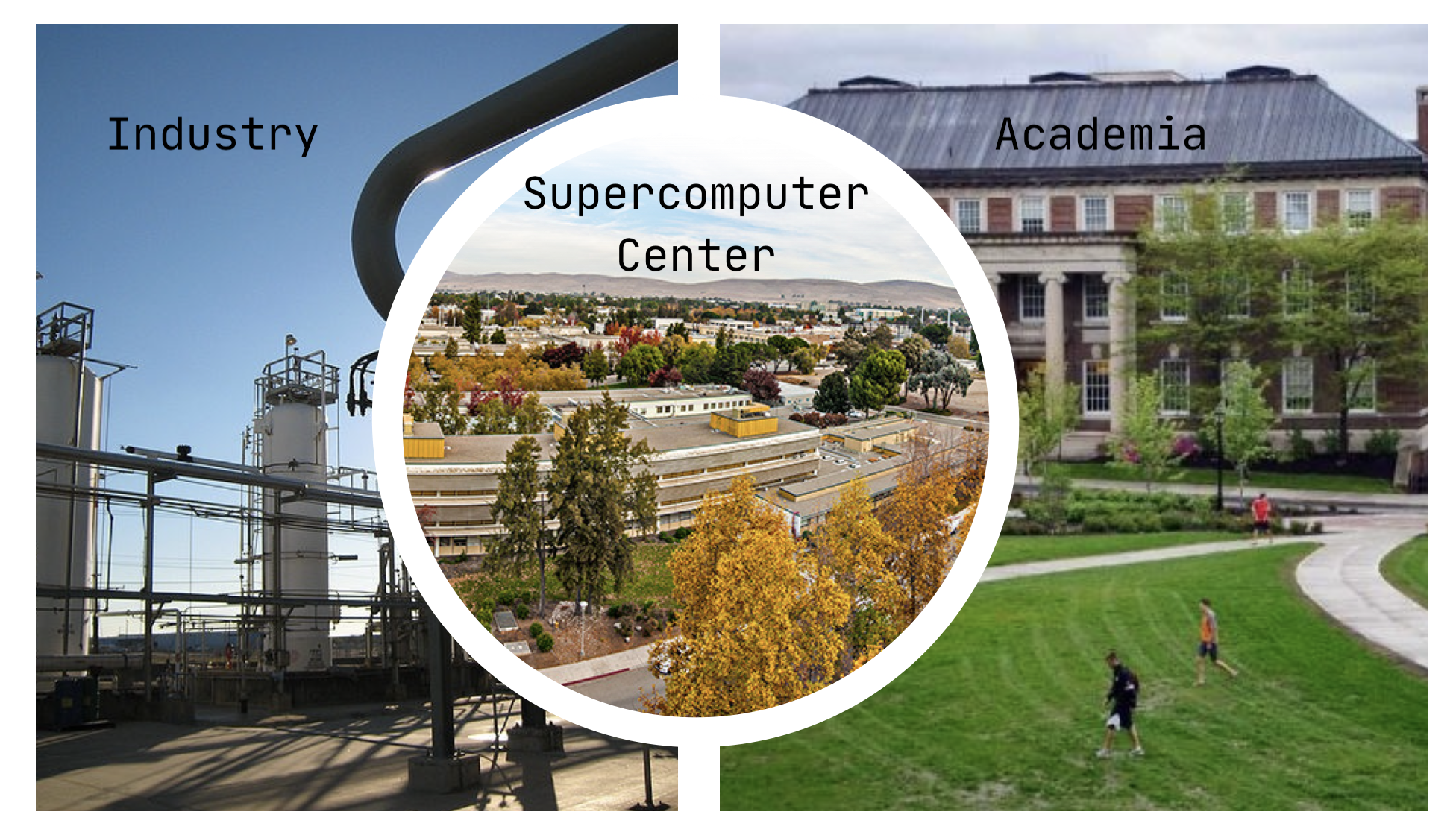IHPCSS Mentoring: Career Workshop
Elsa Gonsiorowski
July 23, 2021
Created: 2021-07-23 Fri 13:30
1 Session Overview
1.1 Schedule
| 15 min | Career Paths Talk |
| 15 min | Peer-to-peer resume review 1 |
| 15 min | Peer-to-peer resume review 2 |
Follow along at
1.2 Disclaimer
- This is a quick talk, with links to some other resources.
- You don't need to know exactly what you want to do, but it's good to have an idea of the possibilities.
- Talk to the staff here about their career experiences and see which options appeal to you.
- A good place to do this will be at Monday's mentoring session: The Resource Fair
1.3 General Career Paths

2 Academia
2.1 Academia
- Teaching at a college or university
- Each institution has a difference emphasis on 3 areas:
- Teaching Responsibilities
- Research (winning grants and writing publications)
- Community Service (departmental roles, conference & journal organization)
- Some initial funding comes from the school, but then you must find more money
2.2 Academic Career Path (US)
titles may be different in different countries
- Post Doc (optional)
- Assistant Professor, tenure track
- Tenure
- Full Professor
2.3 Academia Pros
- You get to work with students through teaching and research
- You get to build your own lab
- Once you have tenure…
- You are "unfireable and almost rich"
- Can explore any research topic you want (if you can get funding)
- Long term career path and stability
2.4 Academia Cons
- You have to work with students, teaching whatever classes need to be taught
- Getting tenure is difficult
- You have to move to wherever the school is
2.5 How to Get Started
- Try teaching / being a teaching assistant
- Try mentoring undergraduates, new graduate students
- Talk to professors in your department
3 Industry
3.1 Industry
- Beholden to customers, must create products to sell
- Can work on government contracts / grants
3.2 Industry Career Path
- Varies by scientific field & company
- Larger companies typically have well-defined career paths with a specific progression of job titles
- May look something like:
- Individual contributor
- Project lead
- Technical Expert
3.3 Industry Pros
- Pay is usually higher than academia
- Company perks: free food, stock options, bonuses, sabbaticals
- May have the freedom to work remotely or more options of where in world/country to work
- You work with/for the customer
- Higher turnover, you can have a more varied career and change roles every few years
3.4 Industry Cons
- You have to make a product / make a profit for the company
- Less freedom to do "pure" research
- You work with/for the customer
- Company culture may not have the best work/life balance
3.5 How to Get Started
- Look for summer internship programs
- Go to career fairs / recruiting sessions
- at your university
- at conferences
4 Supercomputer Center
4.1 Supercomputer Center
- Could be associated with a University or Government Research lab
- Funding could depend on current political climate or vary depending on your current project
- Best of both academia and industry worlds:
- No required teaching responsibilities
- option to work with summer interns
- possibility to do HPC training sessions
- Understand basic research activities, such as publication and conference attendance
- No required teaching responsibilities
4.2 Supercomputer Center Career Path
many paths available, depending on role
- Individual contributor; Consultant/user support; Trainer
- Project or Team Lead
3a. Management 3b. Technical Expert
4.3 Supercomputer Center Pros
- Opportunity to do a specific role, such as user support or application development
- Opportunity to do "pure" research/get grants
- Some labs may have a "mission"
- No required teaching responsibilities
- Culture typically has good work/life balance
4.4 Supercomputer Center Cons
- Government bureaucracy
- Federal funding, not as many perks as industry
- Not as well paid
- Employees are typically there for a long time, some can become "Retired In Place"
- Career path may be limited, depending on size/needs of the center
4.5 How to Get Started
- Look for lab people in your research area, ask about an internship
- Look for summer internship programs
- Research if there are citizenship preferences for different labs
5 Resources
5.1 Resources
- A PhD is Not Enough! by Peter J. Feibelman
- Tomorrow's Professor by Richard M. Reis
- Career Next Steps
- The Postdoc: A Special Kind of Hell
- Illustrated Guide to a PhD
- I did a PhD and did NOT go mad
6 Peer-to-Peer Resume Review
6.1 Peer-to-Peer Resume Review
- See the "Reviewing a Resume or CV" handout
- We will do 2 peer-to-peer sessions, 15 minutes each
- 5 minutes - Exchange resumes and review individually
- 5 minutes - Discuss one person's resume
- 5 minutes - Discuss other person's resume
- We will announce when to switch
6.2 Start the timer!
7 Credits
Created with Emacs, Org Mode, and RevealJS.
View the source.